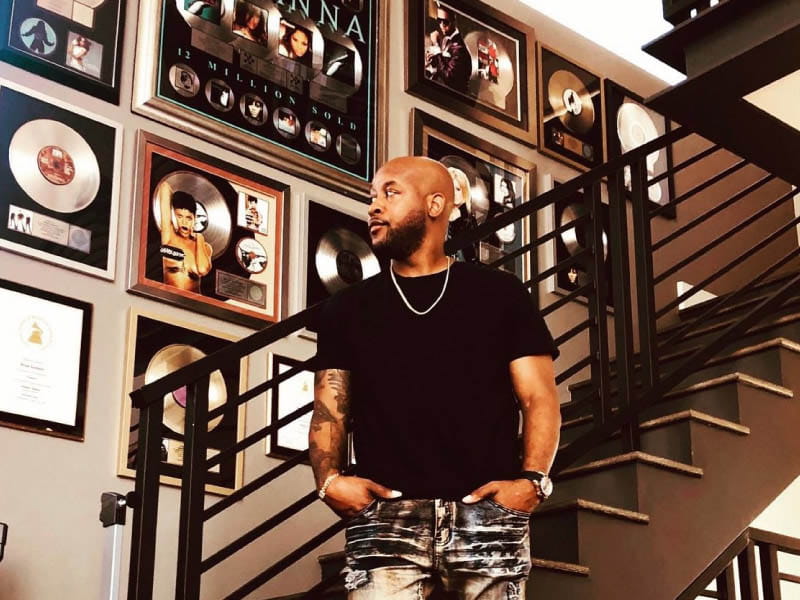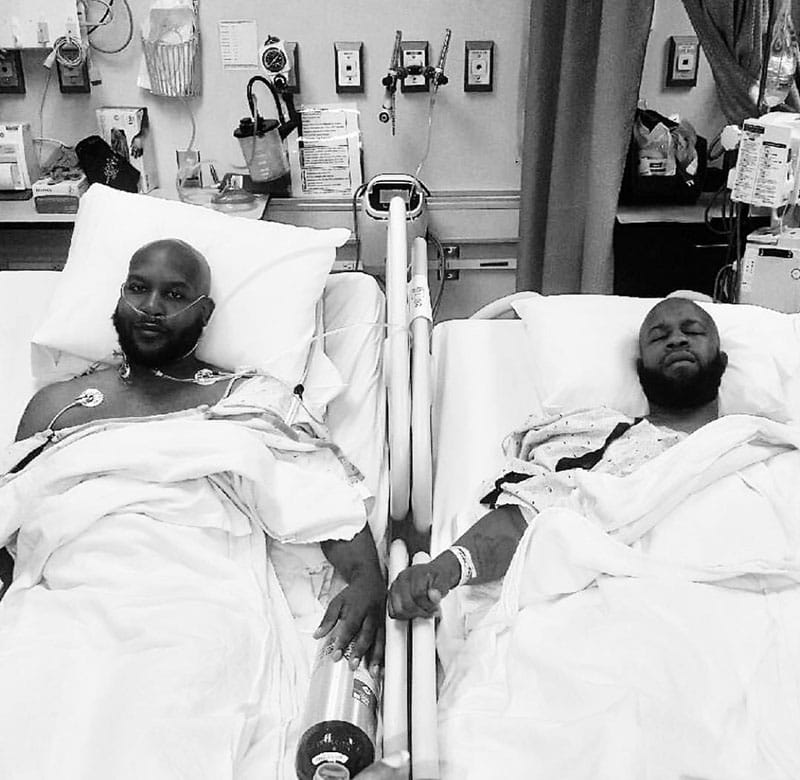Grammy winner, chart-topping producer – and kidney transplant recipient
By Diane Daniel, American Heart Association News

Brian Kennedy was living his dream.
A piano prodigy, he moved from his hometown of Kansas City, Missouri, to Los Angeles in 2003, when he was 20. He started out as a musician for hire, playing a handful of instruments and composing on his own. Then, in 2009, "everything finally started happening," he said.
Kennedy earned Grammy awards for his writing and production contribution to Jennifer Hudson's self-titled debut album and for being a writer and the producer for Rihanna's No. 1 song "Disturbia," while also producing the No. 2 song, Chris Brown's "Forever."
Kennedy quickly became in high demand as a producer and writer. He'd been in Los Angeles long enough to know that when that happens, "you don't say no."
"Producers might be working for two days straight," he said. "You don't sleep. You just gotta keep working."
The lifestyle took a toll.
What started as a regular headache grew in intensity, reaching the point where he described them as "insane." He also felt exhausted. While he didn't smoke or drink alcohol, his diet was fast food, sodas and snacks.
In 2010, Kennedy's hot streak enabled him to afford health insurance. One of his first appointments was with a dentist. He learned he needed his wisdom teeth pulled.
"Yes, that's my problem!" he thought. "Get this done, and life is going to get better."
When Kennedy returned for the procedure, the hygienist took his blood pressure. Alarmed by the result, she went to get the dentist. He checked again.
The dentist told Kennedy his blood pressure was extremely high and that he needed to get to the emergency room immediately.
At the hospital, a doctor told Kennedy that he was a stroke waiting to happen.
Following a urinalysis, doctors could see that Kennedy had a problem with his kidneys. A biopsy showed he had FSGS, or focal segmental glomerulosclerosis, a relatively common form of kidney disease. When a kidney's filters are damaged, they become scarred and are no longer able to filter blood appropriately.
Doctors told Kennedy he would eventually need a kidney transplant. Not yet, though. The more immediate concern was getting his blood pressure under control.
Kennedy hired a trainer and a chef. He also took blood pressure-lowering medication.
"Why was this happening right when the life I had wanted was starting to explode?" he said. "In the music industry, you have to always be at 100%. If you aren't, it's almost like the success and accolades you've earned never happened. Everyone just wants to know what you're on to next."
Kennedy felt like he was living two lives. Maintaining the focus and energy his work required was challenging, but he refused to let anyone know about his health concerns.
"I didn't want people looking at my vulnerabilities," he said.
His outlook became so bleak that he took down all his award plaques. Although the collection was rapidly growing, to him they were a reminder of how hard he'd pushed his body.
"It felt like they were representing destruction," he said.
In 2017, at age 33, Kennedy received a kidney transplant. His donor was his brother Kevin Seals, who had moved to Los Angeles to be his manager.
"I'd do anything for him," Seals said.
The surgery was in Kansas City, which allowed them to recuperate close to home.

Kennedy stayed at his parents' house for three months, a welcome break from his fast-paced life in California.
"Dad would cook, and I got to catch up with my friends," he said.
When he returned to Los Angeles, Kennedy still struggled to open up about his health.
He eventually posted news of his transplant on social media. Although the reactions were extremely supportive, he took down the posts.
"It just felt too overwhelming to be so bare," he said.
During the COVID-19 pandemic, Kennedy began reflecting on his journey, personally and professionally.
As a musician, he returned to what he loved most – playing the piano. He started a weekly online show.
He's also back to work, most recently as producer on The Weeknd's song "Here We Go ... Again," and working with artists such as Bruce Johnston of The Beach Boys, Harold O'Neal, Aloe Blacc, Rex Kudo and CeeLo Green.
As for the personal side, he decided to fully share his story as a way to educate people – especially fellow members of the Black community – about the dangers of high blood pressure. The prevalence of high blood pressure in Black people in the U.S. is among the highest in the world, according to American Heart Association statistics, and research shows they are disproportionately more likely to develop complications associated with high blood pressure.
Seals said his brother's advocacy work is needed.
"A lot of people in general don't know about blood pressure or kidney issues, so I think it's a great idea," Seals said. "You've gotta be vulnerable to be heard. I'm very proud of him."
Stories From the Heart chronicles the inspiring journeys of heart disease and stroke survivors, caregivers and advocates.
If you have questions or comments about this American Heart Association News story, please email [email protected].





